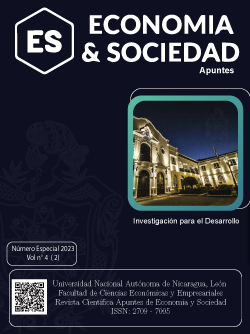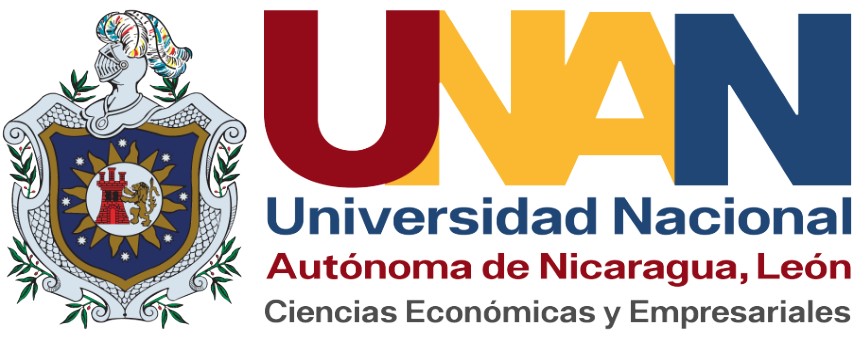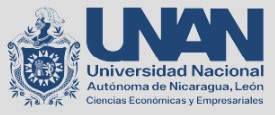Incorporación de la disciplina de género, interculturalidad y derechos en el currículo educativo
DOI:
https://doi.org/10.5377/aes.v4i2.16540Palabras clave:
Educación Superior, equidad, igualdad, pedagogías feministas, decolonialesResumen
La Facultad de Filosofía, Letras y Ciencias de la Educación inició en el año 2020 el proceso de evaluación y reformulación de los diseños de las carreras de la Facultad, mismos que durarán 10 años. En ese marco, este artículo recupera la reflexión académica interdisciplinaria de la Facultad que determina la necesidad de incorporar la disciplina de género, interculturalidad y derechos en las mallas curriculares. Esta experiencia es pionera, puesto que Filosofía, es la primera facultad del país en incorporar dichas temáticas en todas las carreras de educación. En ese escenario, la pregunta es ¿cómo lograr que, una vez que hemos ganado un reconocimiento de esta asignatura en la academia, dando así valor a los estudios de género, interculturalidad y derechos, avancemos en un proceso sostenible que permita efectivamente interpelar las relaciones de poder, de género, étnicas y sociales que se manifiestan en la educación? El reto es mayúsculo porque aquello significaría un cambio, tanto en lo epistemológico como en lo pedagógico; de ahí que, dada la importancia de este proceso se sistematiza la experiencia desde el método de estudio de caso, destacando tanto el enfoque teórico, así como los contenidos y metodología que desde una perspectiva feminista y decolonial sustentan el trazado curricular de la disciplina.
Descargas
Citas
Adam, S. (2007). An introduction to learning outcomes. A consideration of the nature, function and position of learning outcomes in the creation of the European Higher Education. https://is.muni.cz/do/1499/metodika/rozvoj/kvalita/Adam_IH_LP.pdf
Alvarado, M. (2015). La educación superior en clave descolonial. ALGARROBO-MEL, 4(4). 1-9. https://ri.conicet.gov.ar/handle/11336/42566
Buquet, A. (2013). La incorporación de la perspectiva de género y la inclusión social en la currícula universitaria de la UNAM. En Goetsche, A.M y Espinoza, B. (comp.). Hacia posgrados en inclusión social y equidad en América Latina. Experiencias y reflexiones. Actas del II Congreso Internacional de MISEAL, San José Costa Rica, 18-22 Noviembre 2013. (56-64). Recuperado de: https://biblio.flacsoandes.edu.ec/libros/digital/54083.pdf#page=56
Bustos Erazo, R. (2020). Construcción de una pedagogía decolonial...una urgente acción humana. Revista Historia De La Educación Colombiana, 24(24), 15-44. https://doi.org/10.22267/rhec.202424.71
Cuklanz L. y Rodríguez M. P. (2020). New perspectives in feminist methodological research. Investigaciones Feministas, 11(2). 201-209. https://doi.org/10.5209/infe.70122
De Sousa Santos, B. (2006). Renovar la teoría crítica y reinventar la emancipación social (Encuentros en Buenos Aires). Buenos Aires, Argentina: CLACSO. http://hdl.handle.net/10316/44178
Fanón, F., (2009). Piel negra, máscaras blancas. Madrid, España: Akal, S.A. Recuperado de: http://www.arquitecturadelastransferencias.net/images/bibliografia/fanon-piel-negra-mascaras-blancas.pdf
Fundación Aldea (2021). 105 vidas de mujeres arrebatadas por la violencia patriarcal. Recuperado de: http://www.fundacionaldea.org/noticias-aldea/2khwtaaj735pzhy672mgdw
Gómez-Torres, J. y Mora-Alvarado, M. (2019). Pedagogía decolonial: límites, posibilidades y alternativas identitarias trans- e interculturales desde nuestra América. Revista PRAXIS, (79). 1-19. https://doi.org/10.15359/praxis.79.4
Instituto Nacional de Estadísticas y Censos. (2020). Cuentas Satélite del Trabajo No Remunerado de los Hogares (CSTNRH) 2016-2017. Recuperado de: https://www.ecuadorencifras.gob.ec/documentos/web-inec/Estadisticas_Economicas/Cuentas_Satelite/Cuenca_satelite_trab_no_remun_2017/2_Presentacion_resultados_CSTNRH.pdf
Jerez, O., Hasbún, B. & Rittershaussen, S. (2015). El diseño de syllabus en la educación superior: Una propuesta Metodológica. Santiago, Chile: Ediciones Universidad de. Chile. Recuperado de: http://campus-virtual.ler.uam.mx/clasesEnLinea/oda-uam/SYLLABUS_01_dic.pdf
Logroño, M. J., Borja Naranjo, G. y Orozco Ocaña, C. P. (2018). Visión crítica del currículo desde el enfoque de género e interseccionalidad: caso de la Universidad Central del Ecuador. Entorno, (66). 237–255. https://doi.org/10.5377/entorno.v0i66.6743
Lucero, K., (2021, 03 Junio). Si, casi la mitad de ecuatorianos gana más de $550, pero ¿quiénes son realmente ricos? Gestión Digital. Multiplica Ediciones. Recuperado de: https://www.revistagestion.ec/economia-y-finanzas-analisis/si-casi-la-mitad-de-ecuatorianos-gana-mas-de-550-pero-quienes-son
Luelmo del Castillo, M. J. (2018). Origen y desarrollo de las metodologías activas dentro del sistema Educativo Español. Encuentro (27). 4 -21. https://doi.org/10.37536/ej.2018.27.1890
Martínez I. (2016). Construcción de una pedagogía feminista para una ciudadanía transformadora y contra-hegemónica. Foro de Educación, 14(20). 129-151. http://dx.doi.org/10.14516/fde.2016.014.020.008
Méndez-Reyes, J. (2021). Apuntes para una pedagogía decolonial e intercultural. Revista de Filosofía, 38(2). 141-151. DOI: https://doi.org/10.5281/zenodo.5142708
Ministerio de Economía y Finanzas (2021). Boletín de Deuda Pública Interna y Externa. Recuperado de: https://www.finanzas.gob.ec/wp-content/uploads/downloads/2021/05/Presentacion-Boletin-de-Deuda-Publica-Abril-2021.pdf
Ochoa, L. (2007). Una propuesta de pedagogía feminista: teorizar y construir desde el género, la pedagogía, y las prácticas educativas feministas. Ponencia presentada en el “I Coloquio Nacional Género en Educación”. Universidad Pedagógica Nacional – Fundación para la Cultura del Maestro, AC. México. https://www.researchgate.net/publication/340285069_UNA_PROPUESTA_DE_PEDAGOGIA_FEMINISTA_TEORIZAR_Y_CONSTRUIR_DESDE_EL_GENERO_LA_PEDAGOGIA_Y_LAS_PRACTICAS_EDUCATIVAS_FEMINISTAS
Walsh, C. (2009). Interculturalidad, colonialidad y educación. Revista Educación Y Pedagogía, 19(48), 25–35, https://revistas.udea.edu.co/index.php/revistaeyp/article/view/6652
Walsh, C. (2013). Lo pedagógico y lo decolonial: Entretejiendo caminos. En Walsh, C. (editora). (2013) Pedagogías Decoloniales. Prácticas insurgentes de resistir, (re)existir y (re)vivir. Tomo I. Quito, Ecuador: Abya-Yala. https://ayalaboratorio.files.wordpress.com/2018/03/catherine-walsh-pedagogc3adas-decoloniales-volume-i.pdf
Publicado
Cómo citar
Número
Sección
Licencia
Derechos de autor 2023 Universidad Nacional Autónoma de Nicaragua, León

Esta obra está bajo una licencia internacional Creative Commons Atribución-NoComercial-CompartirIgual 4.0.














